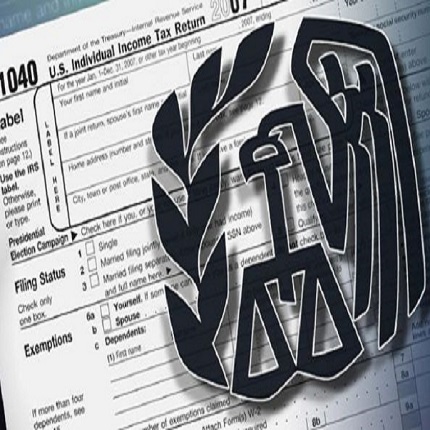Taxing Times: IRS Warning Issued Over Major New Tax Question On Your 2022 Return – See Action You Must Take
 By not paying close attention to a new question while filing your taxes this year could result in consequences from the Internal Revenue Service.
By not paying close attention to a new question while filing your taxes this year could result in consequences from the Internal Revenue Service.
This could come in the form of a penalty or even a delay in your refunds.
This information was revealed through a recent warning issued by the IRS on January 24 that reminded taxpayers they have to report “digital asset-related income.” Additionally, filers must give a response to a new digital asset question on their 2022 federal income tax return, per the Epoch Times.
The verbiage is a replacement from the previous year’s tax return, where the term “virtual currency” was used instead. It also takes place specifically at the top of the 1040 Individual Income Tax Return, 1040-SR, U.S. Tax Return for Seniors, 1040-NR, and the U.S. Nonresident Alien Income Tax Return, according to the IRS.
The warning stressed that all taxpayers must answer the digital asset questions, whether they had related transactions or not.
“All taxpayers must answer the question regardless of whether they engaged in any transactions involving digital assets,” the service said.
Despite this, the IRS claimed they put “expanded” and “clarified” instructions in the digital asset question area for easy comprehension.
The question offers “Yes” or “No” answers and has two parts:
“At any time during 2022, did you: (a) receive (as a reward, award or payment for property or services); or (b) sell, exchange, gift or otherwise dispose of a digital asset (or a financial interest in a digital asset)?” it asks.
The IRS also explained what it defines as a digital asset.
“A digital asset is a digital representation of value which is recorded on a cryptographically secured, distributed ledger.”
The warning listed stablecoins, non-fungible tokens (NFTs), and general convertible virtual currency and cryptocurrency as examples of digital assets.
‘YES’
For further understanding, the IRS offered examples of when a taxpayer might check “Yes” under the new question.
According to the service, you would check “Yes” under the question if you:
- Received digital assets as payment for property or services provided;
- Transferred digital assets for free (without receiving any consideration) as a bona fide gift;
- Received digital assets resulting from a reward or award;
- Received new digital assets resulting from mining, staking and similar activities;
- Received digital assets resulting from a hard fork (a branching of a cryptocurrency’s blockchain that splits a single cryptocurrency into two);
- Disposed of digital assets in exchange for property or services;
- Disposed of a digital asset in exchange or trade for another digital asset;
- Sold a digital asset; or
- Otherwise disposed of any other financial interest in a digital asset.
‘NO’
For those who might check no, the parameters were slightly different.
The IRS explained that a filer who owned digital assets but didn’t engage in any transactions with them during 2022 is allowed to respond “No” to the question.
“Normally, a taxpayer who merely owned digital assets during 2022 can check the “No” box as long as they did not engage in any transactions involving digital assets during the year,” the warning read.
According to the IRS, checking “No” would also be valid if a taxpayer is:
- Holding digital assets in a wallet or account;
- Transferring digital assets from one wallet or account they own or control to another wallet or account they own or control; or
- Purchasing digital assets using U.S. or other real currency, including through electronic platforms such as PayPal and Venmo.
The service explained in the warning that taxpayers can also find more information about the new question and digital assets on page 15 of the Tax Year 2022 1040 (and 1040-SR) Instructions.
Source: The U.S. Sun





